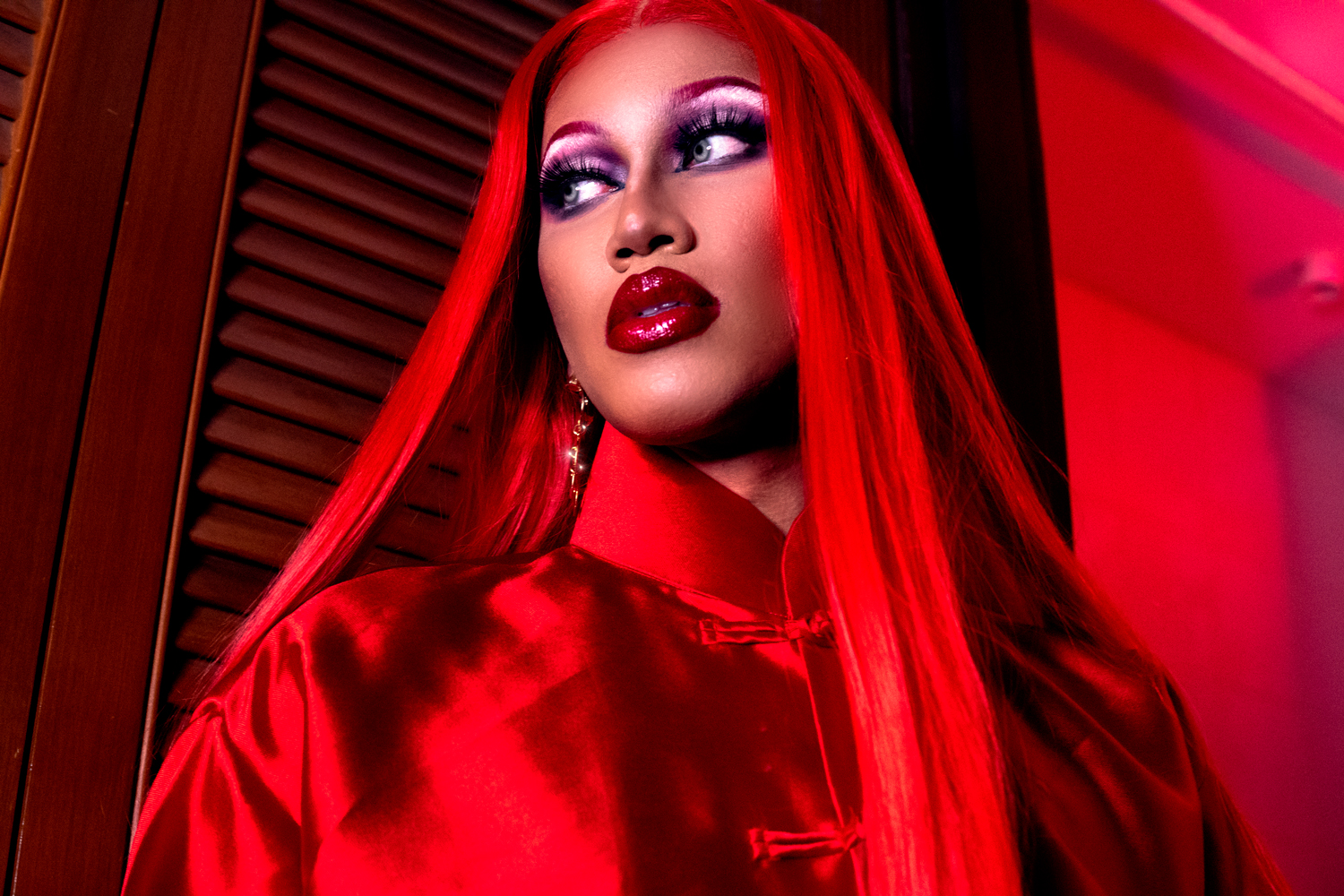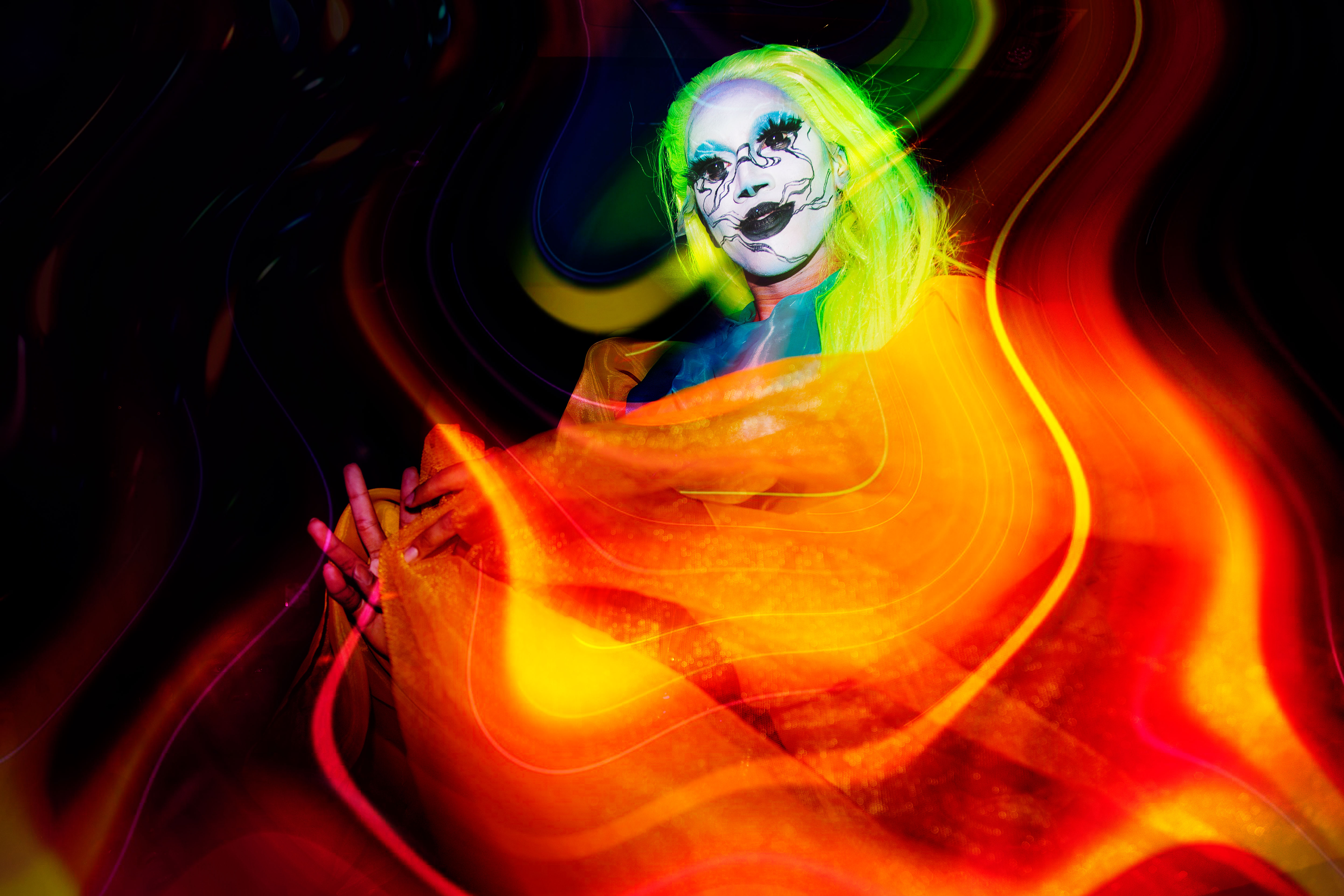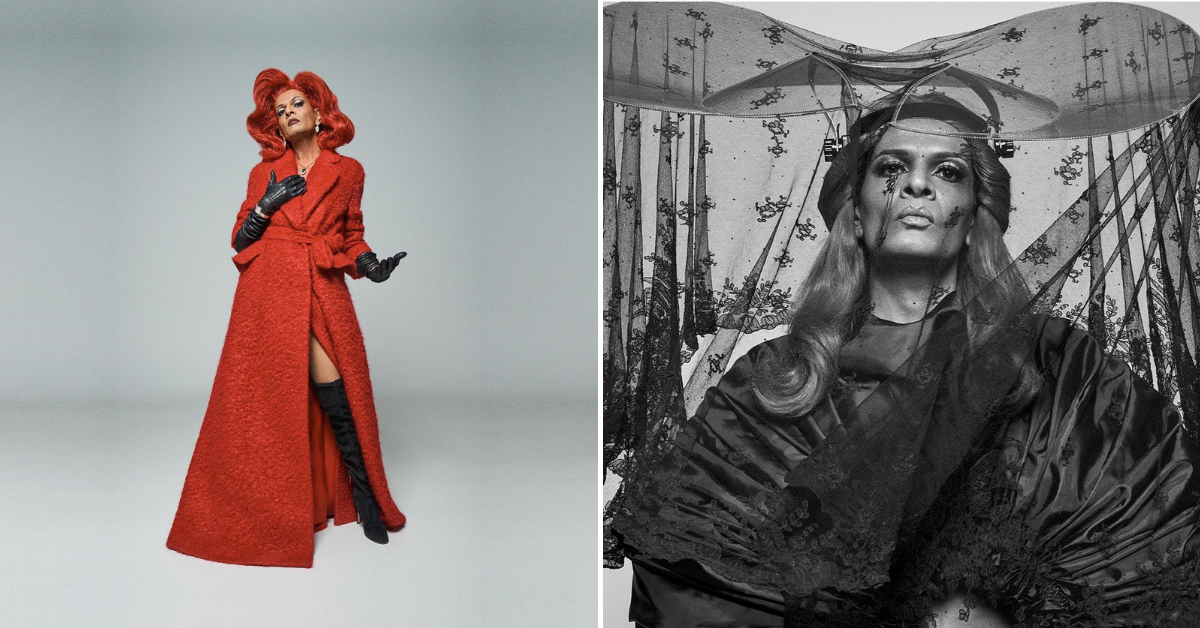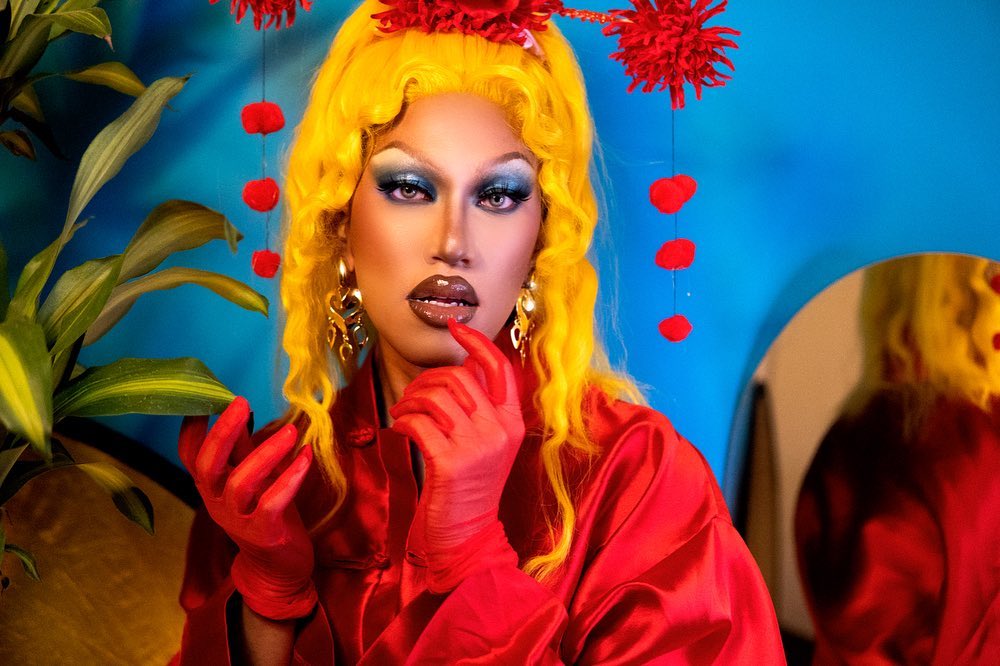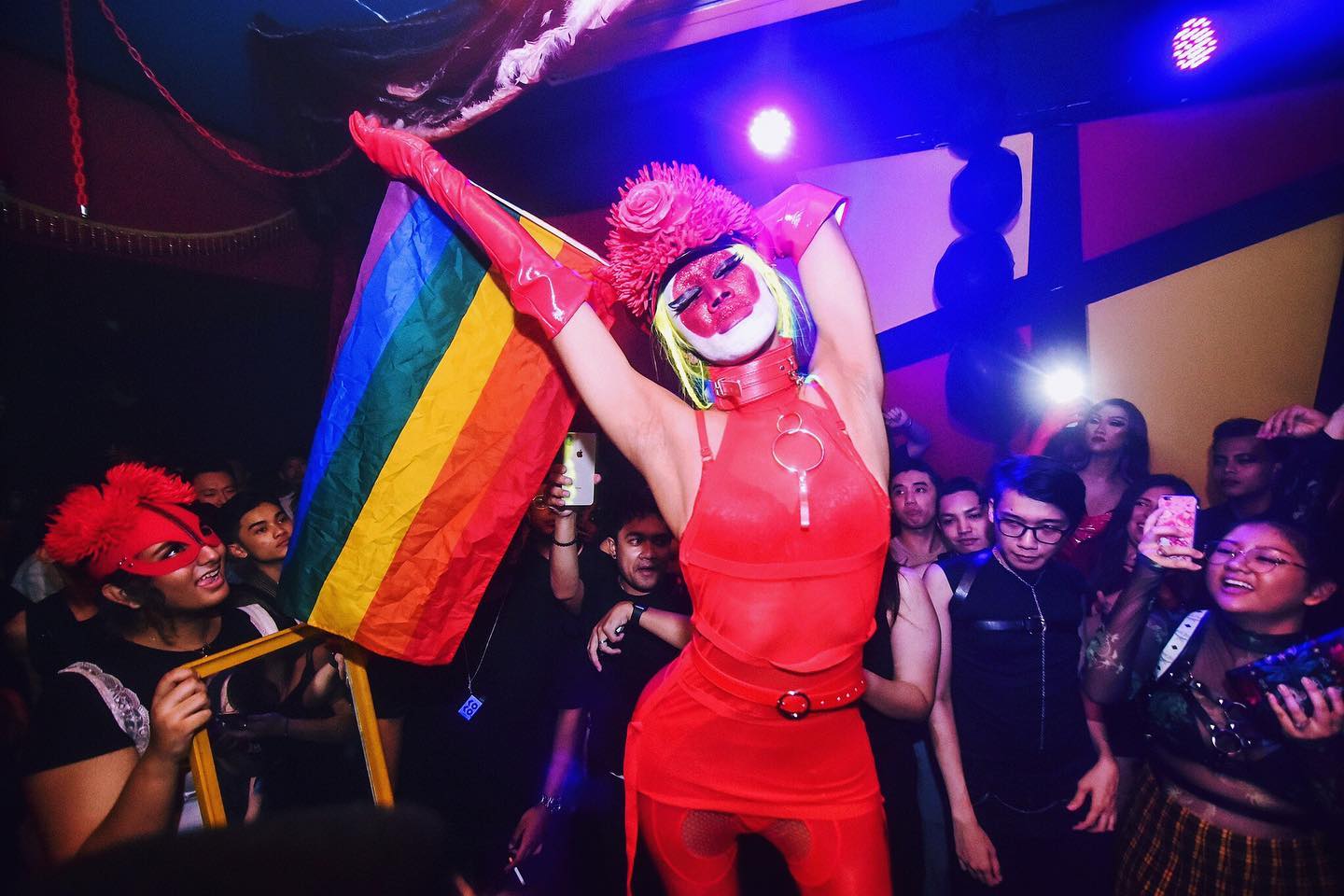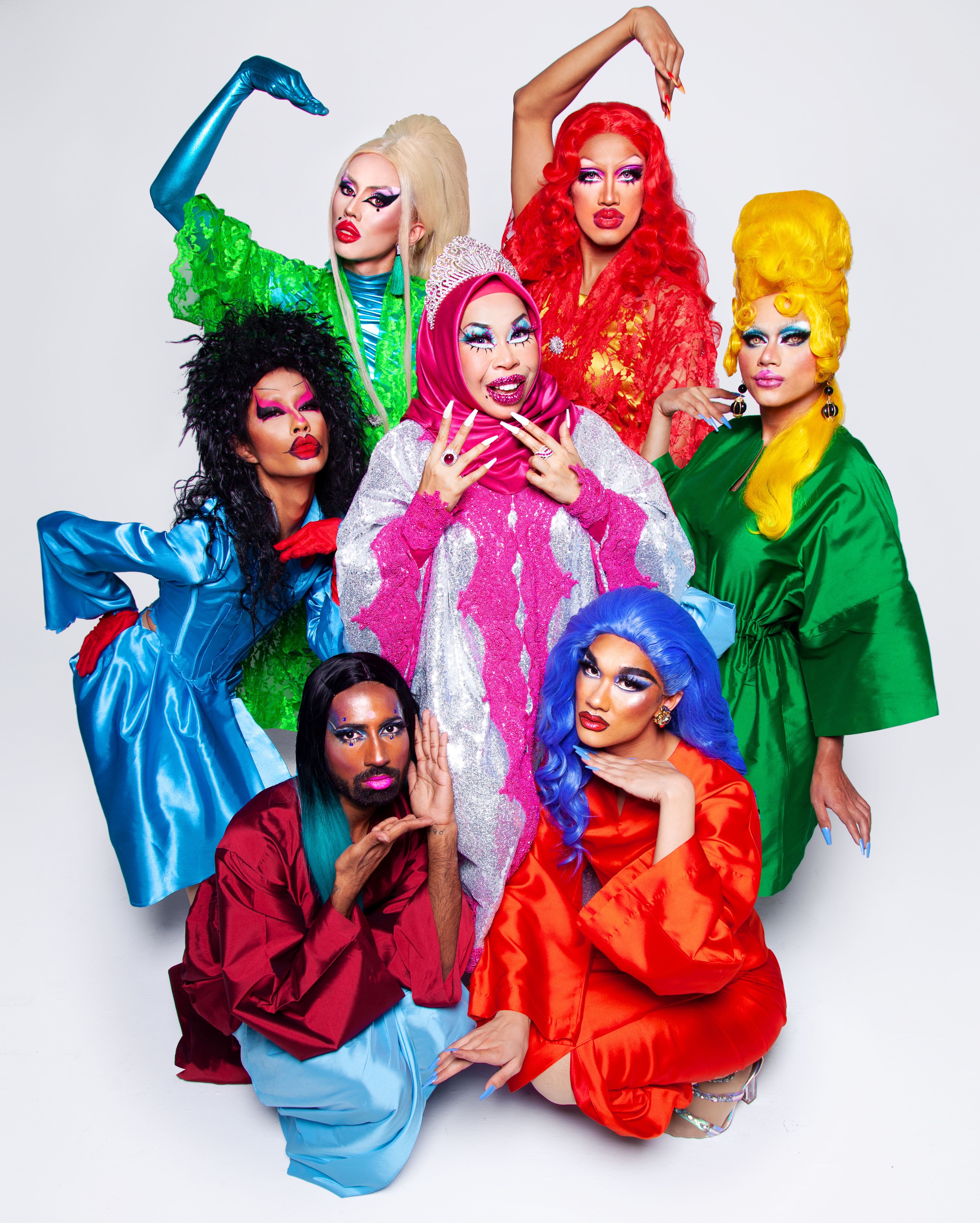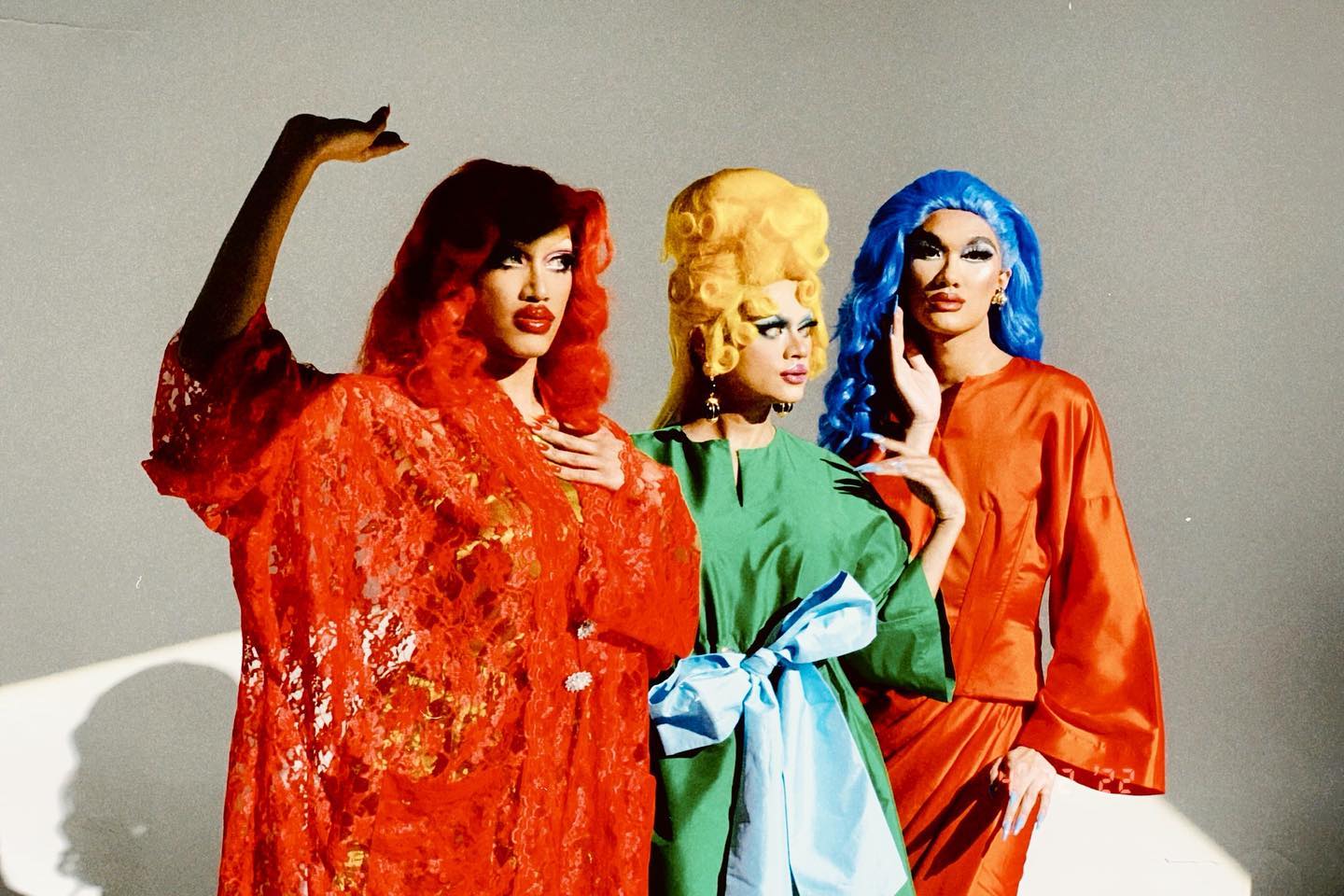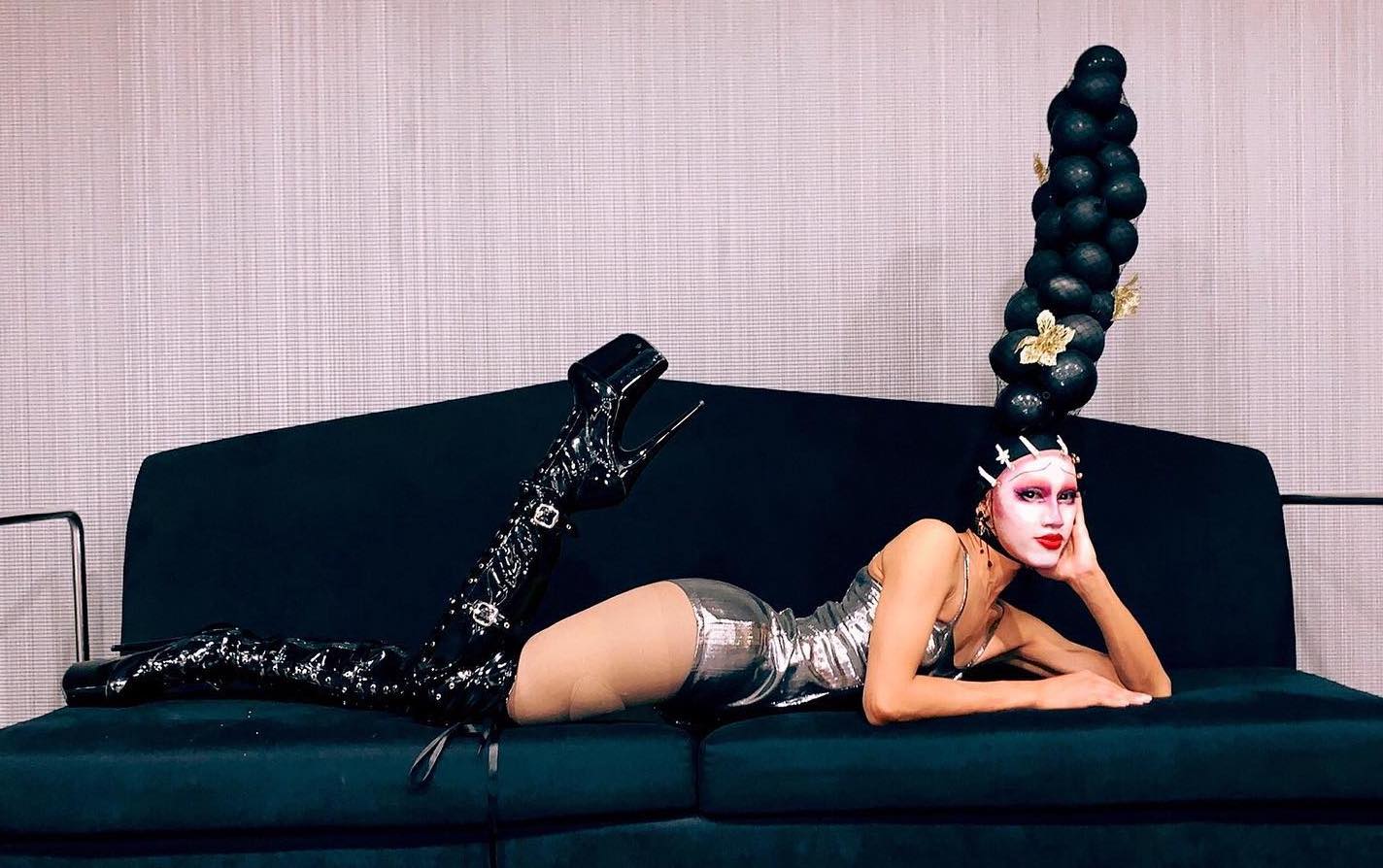From Police Raids To Music Videos — Inside The Beautiful World Of Malaysian Drag
Taking a stand on human rights one performance at a time.
Happy Pride Month!
Recently, drag has been taking the world by storm one corset at a time. But what's the Malaysian take on this historic art form?
Over the past few years, political correctness has skyrocketed to the top of social agendas. Understanding that the plight faced by a minority group of individuals is one worth fighting for, movements such as Me Too, Black Lives Matter, and Stop Asian Hate are making waves all over the world. Among these movements include one that is defying the odds in Malaysia.
The LGBTQ+ community has been taking a stand, and making a mark in widespread media. Through representation in television and movies, appearances at the Met Gala, and even starring alongside Lady Gaga on the silver screen of cinema, queer culture manifests itself in many aspects. However, one seems to gain more notoriety than the rest: drag culture.
Displayed on television, or by Malaysian standards, Netflix, drag has cultivated the world through performers such as Pabllo Vittar and RuPaul Charles. With displays through shows like RuPaul's Drag Race, The Boulet Brothers Dragula, and We're Here, drag is more visible than ever before.
But what about the take on drag in Malaysia? Do drag queens exist here? And if so, what really is being a 'drag queen' all about?
Carmen Rose started her journey in drag almost 10 years ago, and hasn't slowed down since
During our interview with Carmen (who goes by Sam out of drag), we had to ask a question that opens up our entire discussion: what is drag?
"Drag is an acronym for 'Dress Resembling A Girl'. It was used during Shakespearean times when men in theatre would perform women characters because there were no actresses to take on the role. It evolved, and drag today is done more so for entertainment purposes, a tool of self-expression and celebrating LBGTQ+ individuals."
In the world of mainstream drag, Carmen describes drag as an expression of art. Using exaggerated conventional makeup and playing with the visual experience, drag has evolved to become part of 'queer culture', which according to Carmen, is sacred to the LGBTQ+ community.
Clearing up some common misconceptions surrounding drag, Carmen was forthright in explaining the difference between drag queens and transgender women.
"Drag is to do with performance and entertainment — it's a job. Being a transgender woman is living your life day-to-day as a woman, it is your gender identity as supposed to your work."
Explaining gender identity as the sense of ones gender to be male or female, Carmen embellished on how drag is just like any other job. "A police officer has a uniform, but he doesn’t live in his uniform. His job ends, and he goes home. The same goes for drag queens. After our shows, the wigs, makeup, dresses, and lashes leave."
Contrasting this with transgender women, she wittingly explained how transgender women are women all the time, in or out of makeup.
Initially embarking on drag as a means to explore their gender, Carmen stated that they used drag, as a gateway, to express their femininity.
"Dressing up wasn't meant to be drag, really. I was quiet and shy before drag. But Carmen gave me confidence as a person, and I just continued from there."
While taking up drag was a no-brainer, Carmen then needed to decide who this dolled up mystique would be
Prior to taking up drag, Carmen described one of her inspirations.
"My first exposure to drag was Kumar from Singapore. I loved watching Kumar's comedy videos and it sparked something in me; I want to be like her, and I think I can be as good of a queen as she is."
Moving into the birth of her 'drag character', Carmen dedicated her drag persona to musician, Lana Del Rey. "I was listening to her song titled 'Carmen', which centred around a girl that was beautiful on the outside, but unhappy with her life on the inside. It accurately described my life at the time. By putting myself into drag, it momentarily took me away from the sorrow, so I chose the name Carmen. Rose on the other hand, just came from Lana's particular love of roses."
And just like that, Carmen Rose was born!
Detailing the many types of drag that exists, Carmen stated that 'drag queens' themselves are just the tip of the iceberg.
"They're inspired by Western drag, mostly. The up-and-coming queens are very independent, and don't follow the conventional rules of drag."
"Drag queens come in many forms — comedy queens (who perform entertainment pieces surrounding a humorous routine), showgirls (who typically perform high-energy dance numbers), pageant drag queens (who usually entertain by means of their visual appeal as supposed to performance aspect), and even drag kings (who are, most of the time, female artists who dress up in a masculine or male-presenting persona)."
When expounding on her routine for getting into drag, Carmen described how it can be a gruelling process.
"It takes me four hours to get into drag. I am my own hairstylist, fashion stylist, makeup artist, and manicurist, all at the same time. If I have a performance to do, it can take me weeks to create dance routines and memorise lyrics. I even mix tracks by myself to ensure the performance suits my vision. I guess I'm a perfectionist in that way."
And with so much to create, Carmen explained how drag is not an easy career to maintain, and that it takes more than it gives sometimes.
"Drag is expensive, but you can get around it if you're crafty. I work hard not only to take care of myself, but to finance Carmen too." Sam currently does drag part-time, and has a full-time job as a freelance graphic designer. According to them, it is to maintain financial stability, and to continue a steady stream of monthly income.
When asked what visitors could do when they come to watch a drag show, Carmen stated, "We started a tipping culture, to tip the queens with ringgit bills when we perform. We're already giving everyone a great performance, it's only fair that we receive some form of encouragement to help us continue our craft."
But once the world started to change, Sam was left with Carmen's fate hanging in the balance
When COVID-19 hit two years ago, Carmen felt that the end of her drag career was closing in. Trying to find alternatives to be able to resume performance-based drag shows, Carmen stated that she tried doing online shows, "[It] was just too awkward cause the energy was different, so that didn't work out for long."
Through trial and error, Carmen eventually opened up her own TikTok account, sharing drag transformation and performance videos. Her efforts paid off, as she was approached by brands such as Fenty Beauty and Universal Music Malaysia to carry out PR work.
But one of her greatest disappointments was the momentary halt of a monthly drag show organised by a group of drag queens (including Carmen) and a DJ to celebrate inclusivity.
"We call it Shagrilla! Once a month, we used to put out a theme, and anyone who decides to come must dress up according to the theme. It was successful! But lockdown changed that, and we haven't had a party since. However, I am excited to announce that Shagrilla is returning, and having our first party this July!"
Excited for the future, Carmen recollected that while the momentary lockdown was draining in certain ways, the feats she achieved during that rough patch birthed more successes along the way, "I'm very grateful."
One of her biggest hits since returning to the spotlight, post-COVID-19, was a little music video you may or may not have heard of
This past April, Dato Seri Vida released a music video titled "Muah Muah Raya", which featured an ensemble of drag queens, including Carmen. Soaking up the experience of being in a feature by a popular Malaysian influencer, Carmen said she was appreciative to Vida for the opportunity.
"[She] is a nice person, and I appreciated the exposure we garnered from doing the video. She risked her platform to put us out there, and we were ready for the criticism and negative comments."
Despite readying herself for a harsh response by the general public, Carmen noted that the poor portrayal by certain media outlets was disappointing to say the least.
"I was shocked that some platforms chose to pick up the negative responses, when there was a lot of positive feedback. They don't understand that this further perpetuates the hate we were already receiving."
Having her guard up, Carmen noted that the negative feedback after the positive experience was worrying, and made her hesitant for this interview with SAYS.
"There was a police scare recently, and I was in full drag. Thankfully nothing happened. But I'd be lying if I said I wasn't worried in that moment."
Currently, the laws surrounding cross-dressing are uncertain for non-Muslim individuals in secular law. Yet, under Syariah law, cross-dressing is strictly prohibited for all Muslims. This is in spite of Article 10 of the Malaysian Constitution, which guarantees the right to freedom of expression for every citizen.
Such prohibitions worry Carmen (who is non-Muslim) regardless of her religious background and circumstance.
"People like to compare us to Western drag queens, where it is accepted, and it is safe. Neither of those apply for us here. I worry about many things when I have an event coming up — getting into drag, driving to the venue, potentially having to deal with a police stop; It is a scary reality to live."
Carmen was unapologetic when informing us that drag culture stemmed from and belongs to the LBGTQ+ community. With that, certain stigmas from being gay, lesbian, transgendered, or queer have latched themselves onto drag queens, and the prejudice they face on a day-to-day basis.
"When I started doing drag, I never told anyone about it, because when I did, it was received so negatively."
While gaining success on TikTok as mentioned earlier, Carmen recounted how some of her videos were removed due to members of the public reporting her content, and the platform removed it without hesitation.
Vitalising visibility and acceptance, Carmen Rose is not hiding behind any barriers when it comes to representing the community she holds near to her heart.
"Being a drag queen is a visible minority. I will speak out on my platform for the sake of my community, and be on the frontlines for as long as it takes. I am okay with the criticism I draw for supporting LGBTQ+ moments; Change is only going to take place if we demand for what we deserve: our human rights."
Sending a message to other LGBTQ+ individuals in Malaysia, "We are trying to fight. If that is not something you want to do, it is fine, but don't stand in our way when we are part of the cause that's trying to build a greater good for people like you."
With strength and fearlessness on her side, it's hard to imagine anything less than determination and perseverance in Carmen's future
In discussing her plans for the future, Carmen is comfortable with the trajectory of her drag career as of present, and is seeking to continue on this steady incline, to hopefully reach a point of pursuing drag full-time without needing a day job to supplement her income.
Yet, her biggest priority is setting firm ground for future generations of LGBTQ+ individuals in Malaysia.
"I do enough so the younger generation has representation, someone to look up to. Had it not been for other drag queens I've seen in the past, I may not be who I proudly am today."

